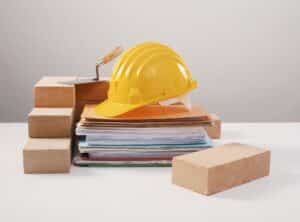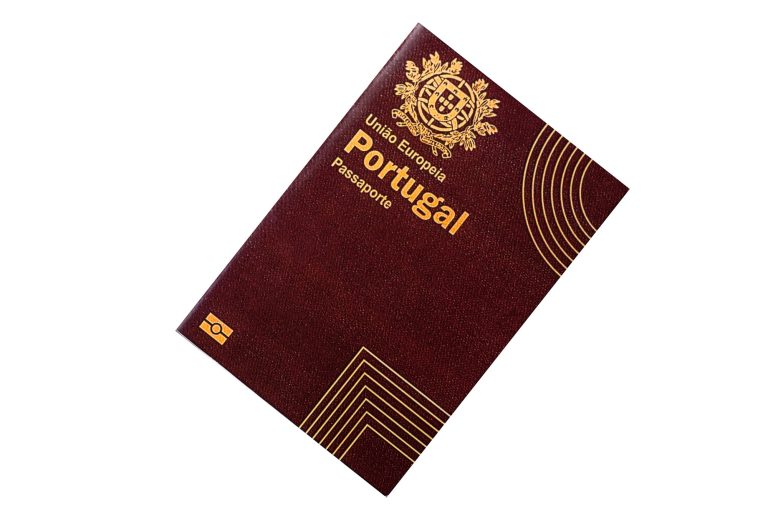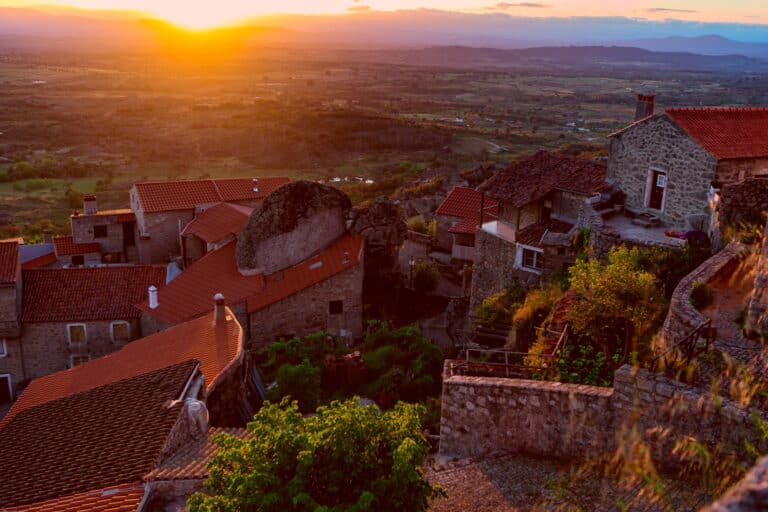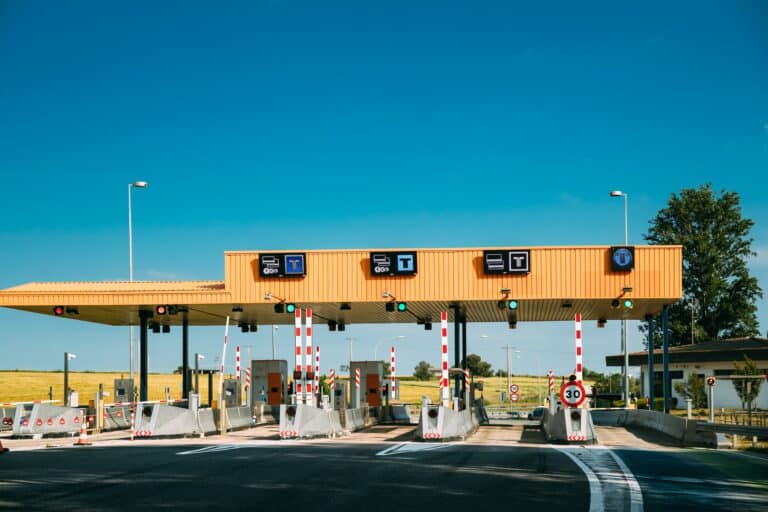Building Permits in Portugal 2025: The Complete Guide for Expats 🏗️
Portugal’s building permit system underwent revolutionary changes in 2024 through Decree-Law 10/2024, introducing “Urban Simplex” reforms that dramatically simplify the process. The traditional licensing system has been replaced with a payment receipt model, and automatic approval now applies if municipalities fail to respond within legal deadlines. This comprehensive guide from Access Portugal provides expats with everything needed to navigate the new system successfully.

The New Legal Landscape Transforms Portuguese Construction
The 2024 reforms represent the most significant overhaul of Portugal’s building permit system in decades. Traditional building licenses (licenças de construção) have been eliminated entirely, replaced by simple payment receipts for municipal fees. This change accompanies the introduction of tacit approval – permits are automatically approved if municipalities don’t respond within 120-200 days, depending on project size.
Municipal authority has been dramatically limited. Councils can now only review building insertion in territory, exterior aesthetics, and infrastructure adequacy. They cannot examine interior building aspects or technical specialties, which are verified through professional declarations by qualified architects and engineers. This shift places greater responsibility on technical professionals while streamlining municipal processes.
AIMA clarification is important – despite common confusion, the Agency for Integration, Migration and Asylum (AIMA) has no role in building permits. AIMA handles only immigration and residency matters. Building permits remain entirely under municipal jurisdiction, with oversight from technical professional bodies like Ordem dos Arquitectos and Ordem dos Engenheiros. If you’re new to Portugal and need visa assistance, explore our comprehensive guide to Portugal visas to understand your residency options before starting your building project.
Step-by-Step Permit Process Demands Careful Planning

The building permit journey begins with a Prior Information Request (Pedido de Informação Prévia), which determines construction viability on specific land. This optional but highly recommended step takes 20-30 days and costs relatively little while providing crucial guidance on what can be built. The response remains valid for two years, giving ample time for project development. Before starting this process, ensure you have your NIF number in Portugal, which is essential for all property-related transactions.
Professional team assembly is mandatory. Portuguese law requires licensed architects for all building designs and engineers for technical systems. These professionals must be registered with their respective Orders and carry professional liability insurance. The architect typically charges 8-15% of total construction cost, while engineering fees add another 5-15%. A construction company registered with INCI and a supervision director are also legally required.
Project submission follows strict requirements. The architectural project (Projecto de Arquitectura) must include detailed drawings, technical specifications, and compliance documentation. Specialized technical projects covering structural, electrical, plumbing, HVAC, fire safety, and energy systems must be submitted simultaneously. Digital submission will become mandatory nationwide by January 2026 through the Electronic Platform for Urban Planning Procedures (PEPU).
The new tacit approval system guarantees timelines. Projects under 300m² receive decisions within 120 days, those between 300-2,200m² within 150 days, and larger projects within 200 days. If municipalities fail to respond, approval is automatic. Municipalities can request additional information only once, with applicants given 10 days to respond. This system prevents the indefinite delays that plagued the old process. While waiting for approvals, consider setting up essential services like opening a bank account in Portugal to manage construction payments efficiently.
Documentation Requirements Vary by Project Phase
Pre-application documentation establishes project viability through land registry certificates, property deeds, topographical surveys, and Municipal Development Plan consultations. This foundation prevents costly mistakes later in the process. Site photographs, measurements, and utility availability confirmations round out initial requirements. For expats unfamiliar with Portuguese bureaucracy, Access Portugal’s team can guide you through each documentation phase, ensuring nothing is overlooked.
Project submission demands comprehensive technical documentation. Beyond architectural drawings, applicants must provide technical specifications, structural calculations, MEP systems designs, fire safety projects, and energy certification plans. Each technical professional must submit terms of responsibility (Termos de Responsabilidade) accepting legal liability for their work. Professional qualification certificates and insurance documentation are mandatory.
Construction phase paperwork continues throughout building. The construction site diary (Livro de Obras) records daily activities and must be maintained meticulously. Material specifications and certifications, health and safety plans, waste management documentation, and quality control records create a comprehensive project history. Regular progress reports and inspection records demonstrate ongoing compliance.
Completion documentation seals the process. Final drawings (Telas Finais) showing as-built conditions replace traditional use permits for controlled works. Professional completion certificates from all technical team members, utility connection confirmations, and system certifications culminate in the building maintenance manual. Energy performance certificates, valid for 10 years, enable future property transactions.
Financial Planning Requires Comprehensive Budgeting 💰
Construction costs vary dramatically by region and quality level. Basic construction runs €1,314-€2,164 per square meter for materials and labor alone. Mid-range projects cost €1,700-€2,500 per square meter all-inclusive, while luxury builds exceed €3,500. Rural areas like Alentejo offer lower costs at €500-€1,500 per square meter, while Lisbon commands premium prices. Understanding Portugal’s real estate market helps in making informed decisions about where to build.
Municipal and government fees add 2-4% to total project cost. Building permit fees range from €5,000-€10,000 depending on municipality and project size. Inspection fees add €500-€2,000. Professional fees for architects, engineers, and project managers typically total 20-25% of construction cost. These services are not optional – Portuguese law mandates professional oversight.
Tax implications multiply costs significantly. Property Transfer Tax (IMT) applies at rates from 0-8% depending on property value and buyer status. Young buyers under 35 can claim exemptions on first properties up to €324,058. Stamp duty adds 0.8% of property value, while annual Municipal Property Tax (IMI) runs 0.3-0.5% for urban properties. Construction services carry 23% VAT, though reduced rates may apply for affordable housing projects. Consider the Non-Habitual Resident (NHR) status for potential tax advantages on your property investments.
Insurance requirements protect all parties. Occupational accident insurance and professional liability coverage are mandatory. Construction All-Risk insurance, while technically optional, is essential protection costing €180-€380 annually. Banks typically require comprehensive property insurance including earthquake coverage, particularly in Lisbon where seismic risk is significant. Explore our insurance options in Portugal to ensure adequate coverage during construction and beyond.
Regional Variations Demand Local Expertise 📍
Lisbon’s metropolitan area imposes the strictest requirements due to historical preservation concerns and seismic considerations. Construction costs reach €2,200-€2,500 per square meter, with enhanced architectural guidelines and complex urban planning regulations. Digital platforms provide faster processing, but stricter oversight means fewer shortcuts. The recent requirement for seismic vulnerability reports adds another layer of complexity. If you’re considering Lisbon for your project but hold foreign qualifications, you may need certified translations of your professional documents.
Porto and northern regions emphasize traditional architecture while accommodating higher precipitation in materials selection. Regional construction preferences and lower costs than Lisbon make these areas attractive for development. Industrial construction in designated zones follows streamlined procedures, though residential projects face similar scrutiny to other urban areas.
The Algarve’s tourism focus creates unique challenges. Coastal protection zones restrict development near beaches, while tourism-specific regulations govern many projects. Swimming pool standards, seasonal construction limitations, and enhanced environmental assessments for coastal proximity add complexity. However, interior land costs remain reasonable at €100-300 per square meter, offering opportunities away from the coast.
Rural areas provide more flexibility but require careful planning. Simplified procedures for agricultural buildings and greater architectural freedom attract many expats. However, building on rustic land remains largely prohibited without reclassification. Recent legislation allows some rural-to-urban conversions for housing and industrial use, but constitutional building rights (Direitos adquiridos) require careful verification. Understanding Portugal’s public transport infrastructure is crucial when choosing remote building locations.
Professional Requirements Ensure Quality and Compliance
Architects from the Ordem dos Arquitectos must lead all building projects, bringing design expertise and regulatory knowledge. Their responsibilities include aesthetic integration, zoning compliance, and permit application management. The recent shift in municipal oversight makes their role even more critical, as their professional declarations now substitute for many traditional municipal reviews.
Engineers provide essential technical expertise across multiple specialties. Structural engineers ensure building safety and seismic resistance. Mechanical, electrical, and plumbing engineers design essential systems. Acoustic and thermal engineers meet comfort and efficiency standards. Fire safety engineers navigate complex protection requirements. Each specialty requires appropriate professional registration and insurance.
Environmental standards drive modern construction. Energy Performance Certificates rating buildings from A+ to F are mandatory for all new construction. Current stock shows only 11.9% achieving A ratings, with 47.7% rated D or lower. New construction must meet stringent efficiency standards including solar thermal systems for hot water, enhanced insulation, and renewable energy integration where feasible.
The supervision director (Director de Obra) oversees construction execution. This qualified professional, typically an engineer or senior technician, ensures work follows approved plans and technical specifications. They maintain the construction diary, coordinate inspections, and certify completion. Their legal liability extends five years for structural defects and ten years for non-professional clients.
Common Expat Challenges Require Strategic Solutions 🤔
Language barriers present the first major hurdle. Municipal proceedings typically occur only in Portuguese, with technical terminology adding complexity. Certified translations are mandatory for official documents including permits, court orders, property deeds, and professional qualifications. Practical solutions include hiring bilingual professionals, using translation apps for basic communication, and bringing interpreters to meetings. Consider learning Portuguese to navigate the permit process more effectively and integrate better into your new community.
Cultural differences in business practices frustrate many expats. “Portuguese speed” means processes move slowly, with August and December particularly unproductive. The principle “cada casa é um caso” (each house is a different case) means seemingly similar projects may face different requirements. Building relationships and demonstrating patience often matter more than pushing for quick resolution. Understanding these cultural nuances is part of successfully moving to Portugal and building your dream home.
Property status confusion traps unwary buyers. Many older properties lack proper permits, with previous owners having built illegally. Discovering these issues after purchase creates expensive legalization requirements. Thorough due diligence, including municipal record searches and professional property inspections, prevents costly surprises. Never rely solely on seller assurances or estate agent recommendations.
Penalties for non-compliance range from annoying to devastating. Fines run €500-€200,000 depending on violation severity. Demolition orders, while rare, can destroy dreams and investments. Illegal buildings cannot be sold or legally connected to utilities. Criminal liability applies for serious or repeated violations. The new simplified system makes compliance easier but doesn’t eliminate enforcement. Ensure you understand all requirements before proceeding – contact Access Portugal for expert guidance on compliance matters.
Digital Transformation and Future Developments 🚀
The Electronic Platform for Urban Planning Procedures (PEPU) launches mandatory nationwide implementation in January 2026. This system standardizes submissions across all municipalities, provides real-time application tracking, and enables electronic notifications. Future integration with Building Information Modeling (BIM) will allow automated compliance checking, further streamlining approvals. This digital evolution parallels Portugal’s modernization in other areas, including its attractive startup visa program for tech entrepreneurs.
The new Construction Code arrives in 2026, consolidating over 100 scattered laws into a unified framework. This modernization replaces 1960s-era regulations with standards reflecting current technology and practices. The complete revocation of the outdated General Regulation on Urban Buildings (RGEU) eliminates many archaic requirements like mandatory bidets while introducing contemporary sustainability standards.
Sustainability requirements continue tightening. The EU’s “Fit for 55” objectives drive enhanced efficiency standards. Fossil fuel heating systems face phase-out from 2025. Smart building technologies integration becomes increasingly expected. Water conservation, waste reduction, and circular economy principles shape new development requirements. These changes align Portugal with broader European environmental goals while potentially increasing construction costs.
Practical Strategies for Permit Success ✅
Start with realistic timeline expectations. While the new system promises faster approvals, allow 18-24 months for complex projects from initial planning through completion. Budget 30-50% time buffers for unexpected delays. Financial reserves should include 15-20% contingency funds beyond quoted costs. These buffers prevent stress when inevitable complications arise. For those planning to work remotely during construction, consider the D8 Digital Nomad Visa which allows you to oversee your project while maintaining international income.
Professional team selection determines project success. Seek recommendations from established expat communities rather than relying on estate agents. Verify credentials through professional orders. Check recent project references. Ensure all team members carry required insurance. Establish clear communication protocols and expectations upfront. Bilingual professionals, while sometimes more expensive, prevent costly misunderstandings.
Leverage expat community wisdom through Facebook groups like “Expats Portugal” and specialized forums. These communities share real-world experiences, recommend trusted professionals, and warn about common pitfalls. Local meetup groups provide face-to-face networking opportunities. Online platforms like Idealista forums offer property-specific discussions. This collective knowledge supplements professional advice with practical insights.
Consider strategic approaches to simplify your project. Renovation often faces easier permitting than new construction if you maintain existing structures. Phased development allows starting work on approved portions while finalizing other permits. Using pre-approved architectural templates or standard designs can expedite approvals. Building strong relationships with municipal officials, while time-consuming, often yields long-term benefits. Those who successfully navigate these challenges often progress to Portuguese residency and eventually citizenship.
Portugal’s building permit system, despite recent simplifications, remains complex enough to challenge even experienced developers. Success requires patience, professional guidance, and cultural adaptation. The 2024 reforms have eliminated many bureaucratic obstacles, but language barriers, regional variations, and technical requirements still demand careful navigation. By understanding the system, assembling strong professional teams, and maintaining realistic expectations, expats can successfully build their Portuguese dreams while avoiding common pitfalls that trap the unprepared.
At Access Portugal, we understand the complexities of building in Portugal as an expat. Our experienced team provides comprehensive support throughout your building permit journey, from initial consultations to final approvals. Learn more about our services and how we can help make your Portuguese building project a success.
Frequently Asked Questions
Do I need a building permit for renovations in Portugal?
Yes, most renovations require permits, especially if they affect the structure, facade, or increase living space. Minor interior cosmetic changes typically don’t need permits, but always verify with your municipality. The new Urban Simplex rules have simplified the process, but compliance remains mandatory.
How long does it take to get a building permit in Portugal in 2025?
Under the new tacit approval system, permits are automatically approved if municipalities don’t respond within: 120 days for projects under 300m², 150 days for 300-2,200m², and 200 days for larger projects. However, factor in additional time for document preparation and potential revisions.
Can foreigners buy land and build in Portugal?
Yes, EU citizens have the same property rights as Portuguese nationals. Non-EU citizens can also buy and build, though they may need specific visas for extended stays. Consider exploring D7 Passive Income Visa or Golden Visa options for residency during construction.
What happens if I build without a permit in Portugal?
Building without permits can result in fines from €500 to €200,000, demolition orders, inability to sell the property, and disconnection from utilities. The property cannot be legally registered or insured. Always obtain proper permits to avoid these severe consequences.
How much does a building permit cost in Portugal?
Municipal building permit fees typically range from €5,000-€10,000 depending on project size and location. Additional costs include professional fees (architects, engineers) which can total 20-25% of construction costs, plus various administrative fees and taxes.
Can I convert rural land to urban for building in Portugal?
Recent legislation allows some rural-to-urban conversions, but the process is complex and not guaranteed. You’ll need to demonstrate the land meets specific criteria and obtain municipal approval. This process can take 1-2 years and requires professional assistance.
Do I need to speak Portuguese to get a building permit?
While not legally required, Portuguese language skills significantly help. All official documents and proceedings are in Portuguese. You’ll need certified translations of foreign documents and may benefit from hiring bilingual professionals or interpreters for meetings.
What’s the difference between a project approval and a building permit in Portugal?
Under the new system, there’s no traditional “building permit.” Instead, you receive project approval, pay municipal fees, and receive a payment receipt that serves as your authorization to build. The construction must follow the approved project exactly or face penalties.







